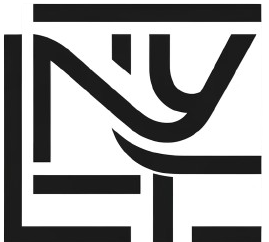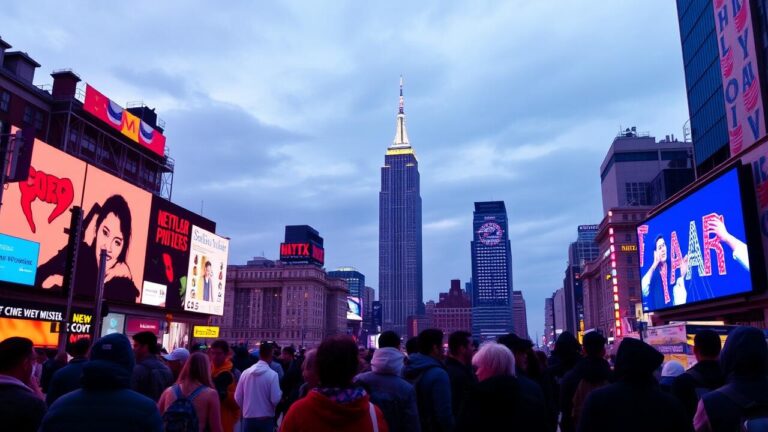Exploring Philosophical Debates in New York: A Guide for Enthusiasts
Literature and art—oh, what a fascinating duo! They’ve long been the vibrant conduits of philosophical musings, haven’t they? Through the ink-stained pages, authors beckon readers to dive headfirst into the swirling depths of existential quandaries, moral dilemmas, and the very essence of reality itself. Just think about it: from Shakespeare’s intricate plays that dance between love and betrayal to Dostoevsky’s profound prose that wrestles with faith and despair—their works are like rich tapestries woven with complex themes that demand our reflection. And let’s not overlook artists! With their brushes and canvases or sculptures carved from stone, they probe deep philosophical inquiries too. Their creations don’t just sit there; they ignite thought-provoking dialogues about human experience and societal constructs.
Ah, but here’s where it gets really intriguing—this engagement with philosophy through literature and art fosters a unique stage for dialogue among those who seek understanding. Picture this: book clubs bursting forth as people gather in cozy corners to dissect every nuance found in novels or poetry lines that resonate deeply within them. Art galleries come alive as exhibitions showcase pieces steeped in philosophical inquiry; visitors exchange ideas animatedly, each conversation sparking new revelations like fireworks on a summer night! These gatherings breathe life into complex thoughts while forming a sense of community—a collective journey through tangled ideations. The interplay between diving into philosophy and unleashing artistic expression opens floodgates to myriad interpretations—enhancing not just appreciation but also comprehension of these weighty concepts we grapple with together. Isn’t it simply exhilarating?
Intersections of Creative Expression and Philosophical Ideas
The tangled interplay between philosophy and creative expression has long served as a vibrant tapestry for exploration. Renowned artists, writers, and philosophers have intricately woven complex ideas into the very fabric of various mediums. Consider the metaphysical currents flowing through J.M. Coetzee’s narratives or the existential quandaries laid bare by abstract expressionists—here, art transforms into an evocative vessel for philosophical inquiry. Literature unfurls emotional tapestries that ensnare readers in profound ethical conundrums, while visual masterpieces beckon contemplation on existence itself and our perceptions thereof.
Delving into philosophical concepts via creative outlets sparks a dialogue uniquely absent from conventional academic arenas. In bustling New York, museums, theaters, and literary festivals become dynamic crossroads where artists and thinkers collide—igniting rich discussions that deepen appreciation for both realms. Events that seamlessly weave philosophical themes into performances, exhibitions, or readings do more than entertain; they stir thought-provoking reflections within participants about their own beliefs amidst the vast expanse of human experience—a challenge to ponder deeply what it means to exist in this intricate world we inhabit.
Thought-Provoking Philosophy Clubs and Groups
Philosophy clubs and groups—these vibrant hubs of thought—serve as vital arenas for enthusiasts eager to dive into the labyrinth of complex ideas together. Here, conversations ebb and flow like a restless tide, encouraging open dialogue that allows a tapestry of diverse perspectives to flourish. Participants engage in spirited discussions that meander from ethical quandaries to existential musings, often weaving insights drawn from ancient texts alongside the pulse of contemporary issues. In these dynamic settings, not only is understanding deepened; one’s intellectual horizons expand dramatically as preconceived notions are challenged and reshaped.
In local communities, a wealth of opportunities beckons individuals to seek out philosophy groups that resonate with their unique interests. Be it within the hallowed halls of universities, the welcoming spaces of libraries, or the creative enclaves found in cultural centers—these clubs frequently host guest speakers who ignite curiosity, workshops designed to provoke thought, and discussion panels where ideas clash and coalesce. Engaging with fellow members sharpens critical thinking skills while fostering an invigorating sense of belonging among those fervent about philosophical exploration. This connection cultivates a rich intellectual culture—a testament to the power and necessity of collective inquiry in navigating life’s profound questions.
Joining Local Communities for Intellectual Engagement
Diving into the vibrant world of local philosophy clubs and discussion groups offers a captivating chance to immerse oneself in a kaleidoscope of philosophical ideas while forging connections with kindred spirits. These eclectic communities frequently gather for regular meetings, where members enthusiastically share their insights on both age-old texts and modern philosophical musings. Such collaborative environments ignite critical thinking, unleashing a torrent of diverse interpretations that amplify participants’ grasp of intricate concepts—each voice adding its unique color to the tapestry of understanding.
Beyond these structured dialogues, many groups also orchestrate lectures, workshops, and events showcasing guest speakers from an array of academic realms. This rich exposure to varied perspectives transforms the intellectual landscape, shattering the constraints imposed by traditional textbook philosophy. Participants often find themselves swept away by inspiration—venturing into uncharted territories or reexamining long-held beliefs—which makes local philosophy clubs not just gatherings but essential sanctuaries for profound intellectual exploration!
| Philosophy Club Name | Location | Meeting Frequency | Featured Topics |
|---|---|---|---|
| Seattle Philosophy Society | Seattle, WA | Weekly | Ethics, Existentialism, Metaphysics |
| Philosophers’ Guild | New York, NY | Bi-weekly | Political Philosophy, Feminism, Philosophy of Mind |
| San Francisco Dialectics | San Francisco, CA | Monthly | Critical Theory, Phenomenology, Eastern Philosophy |
| Chicago Philosophical Circle | Chicago, IL | Every Other Week | Logic, Philosophy of Science, Aesthetics |
The Role of Technology in Modern Philosophical Discourse
The relentless march of technology has dramatically reshaped the terrain of philosophical dialogue, paving the way for an explosion of ideas like never before. Picture this: social media platforms, blogs bursting with insight, and niche forums teem with vibrant discussions among philosophers, students, and curious minds—no longer confined by borders or time zones! Suddenly, thoughts can leap across vast distances in a heartbeat, sparking a whirlwind evolution of concepts that are as dynamic as they are diverse.
And it doesn’t stop there; think about podcasts and video lectures—those portals to intellectual engagement—transforming how we consume philosophical discourse. Knowledge is no longer locked away in ivory towers but laid bare for anyone willing to dive in. It’s a true democratization of thought!
Moreover, technology arms us with powerful tools for delving deep into the labyrinthine world of philosophy. Digitized archives and expansive databases unlock access to both historical masterpieces and contemporary gems alike. Scholars find themselves equipped to navigate various philosophical traditions with newfound ease—a rich tapestry just waiting to be explored! Online courses and virtual seminars offer invitations to grapple with intricate topics under the mentorship of seasoned thinkers who guide eager learners through complex terrains.
In essence, technology isn’t merely a facilitator; it’s an engine driving the propagation of philosophical knowledge while nurturing collaborative inquiry among eclectic audiences hungry for intellectual growth—and oh what a thrilling ride it is!
Digital Platforms Facilitating New Conversations
The explosion of digital platforms has radically reshaped the landscape of philosophical discourse, igniting a transformation that’s as bewildering as it is exhilarating. Imagine online forums buzzing with activity, social media channels pulsing with ideas, and dedicated philosophy apps creating virtual agora where minds collide—each discussion transcending miles and borders! This newfound accessibility isn’t just a convenience; it’s an invitation to a vibrant tapestry of perspectives that traditional venues often fail to weave together.
In these pixelated arenas, anonymity reigns supreme—a double-edged sword that can unleash raw honesty among participants. Here, individuals dive headfirst into intricate concepts without the shackles of judgment weighing them down. It’s a playground for intellectual exploration where discomfort gives way to discovery.
Moreover, these digital domains have democratized wisdom in ways we never imagined possible. Experts mingle with enthusiasts in webinars and podcasts that pop up like mushrooms after rain—eagerly sharing their insights on everything from ethics to existentialism. The result? A wider audience hungry for knowledge and complex ideas distilled into more digestible bites. This surge fosters not merely passive consumption but an active community bursting at the seams with curiosity—thinkers ready to engage in philosophical dialogues that are both innovative and refreshing.
These platforms don’t just spark new debates; they catalyze a collective odyssey towards deeper understanding—a shared quest through the labyrinthine corridors of contemporary thought where every idea holds potential for revelation!
- The ability to engage with diverse viewpoints encourages critical thinking and helps develop more rounded perspectives.
- Increased access to thought leaders and philosophers broadens the field of influence and inspiration for learners at all levels.
- Online discussions allow for real-time interactions, facilitating immediate feedback and collaborative learning.
- Multimedia resources—such as videos, infographics, and interactive content—enhance comprehension and retention of complex ideas.
- Anonymity can promote more honest exchanges, allowing individuals to express unconventional thoughts without fear of repercussions.
- Digital platforms enable the formation of global networks, fostering a sense of community among those passionate about philosophical inquiry.
- Increased participation in philosophical discourse can lead to greater social awareness and engagement with pressing contemporary issues.
Philosophy in Everyday Life
Philosophy, a profound instrument for deciphering the intricacies of our existence and sculpting personal ethics, weaves through the very fabric of human experience. When individuals grapple with dilemmas—those knotty twists in life’s journey—they often find themselves reaching for philosophical concepts like lifebuoys tossed into turbulent waters. Concepts such as utilitarianism and existentialism don’t just float on theoretical shores; they offer robust frameworks that help one navigate choices steeped in belief and priority, illuminating paths where shadows once loomed.
The practical dance of philosophy in day-to-day life can spark an awakening—a reflective mindset blossoming amidst the chaos. Mindfulness practices echo the stoic wisdom of yore, nudging us to anchor ourselves in the present moment while deftly managing our responses to life’s unpredictable tides. In professional arenas, grappling with ethical quandaries becomes second nature; it shapes interactions with colleagues and clients alike, infusing daily engagements with deeper meaning. As individuals peer through this philosophical lens at their beliefs—like examining intricate patterns woven into a tapestry—they unearth lives that resonate more closely with their authentic selves while nurturing a society brimming with thoughtfulness.
Incorporating Philosophical Concepts into Daily Decision-Making
Philosophical notions weave a rich tapestry for dissecting personal choices and the intricate fabric of societal norms. Delving into ethical constructs—think utilitarianism, deontology—invites individuals to peel back layers of their values, illuminating the path toward informed decision-making. These frameworks don’t just sit idly by; they stir up contemplation about the ripple effects of our actions, nudging us toward a more introspective stance when facing life’s daily conundrums. This thoughtful inquiry deepens our grasp on what truly matters, revealing how our priorities intertwine with those around us.
Weaving philosophy into the mundane threads of everyday existence can metamorphose trivial decisions into vibrant avenues for growth and self-discovery. Consider existentialism: applying its tenets empowers folks to tackle dilemmas head-on, embracing personal responsibility and authenticity in each choice made. Such practice fosters an intentional cadence to life itself, urging mindfulness within every interaction and selection we confront. By nurturing philosophical insight, navigating life’s complexities transforms from daunting chaos into a journey marked by clarity and purpose—ultimately enriching both individual lives and the broader community tapestry in which we all reside.
Future Trends in Philosophy Education and Practice
The landscape of philosophy education is undergoing a fascinating metamorphosis, propelled by an insatiable appetite for interdisciplinary approaches that weave together age-old philosophical inquiries with fresh insights from dynamic realms like cognitive science and environmental studies. Institutions are embracing innovative methodologies, where the dusty old lecture halls collide with experiential learning and collaborative projects in a vibrant dance of ideas. This remarkable shift isn’t just about teaching; it’s about igniting critical thinking skills while grappling with the labyrinthine complexities of contemporary issues.
Moreover, technology’s impact on philosophy education is nothing short of revolutionary. Online platforms spring forth as new arenas for engagement, enabling discussions that transcend borders—both geographical and intellectual. Virtual reality and multimedia tools don’t merely enhance the educational experience; they transform it into something vivid and interactive, rendering philosophical concepts not only more accessible but also palpably engaging. This infusion of technology expands participation exponentially while inviting a kaleidoscope of diverse perspectives to enrich the ever-evolving discourse in philosophy.
Emerging Areas of Study and Their Implications
Recent twists and turns in the realm of philosophy have ignited a fascinating interest in interdisciplinary studies, where age-old philosophical inquiry collides spectacularly with groundbreaking insights from fields like neuroscience and artificial intelligence. This dynamic landscape beckons us to delve deep into the ethical frameworks that surround our brave new world of technology—pondering, for instance, how machine learning reshapes our understanding of agency and morality. And let’s not overlook the infusion of environmental philosophy! It boldly tackles today’s pressing global challenges, sparking vital dialogues on sustainability and our ethical obligations toward Mother Earth.
As we peer into the future of philosophical education, it becomes increasingly clear that these interdisciplinary approaches are leaving an indelible mark. By weaving subjects like bioethics and digital ethics into academic curricula, we equip students not just to wrestle with contemporary dilemmas but also to prepare them for careers navigating the turbulent waters shaped by swift technological evolution. As they engage with a multitude of philosophical viewpoints, these students find themselves better equipped to join discussions that forge ethical practices within society at large. This vibrant fusion of time-honored philosophy with modern-day quandaries amplifies its significance in a world that’s perpetually morphing before our very eyes!
Conclusion
New York pulsates with a kaleidoscope of ideas, serving as a dynamic canvas for philosophical inquiry. Here, literature dances with art and technology in an intricate waltz that sparks fervent conversations. The city’s rich cultural tapestry beckons thinkers and dreamers alike to immerse themselves in clubs and communities that upend traditional notions, igniting curiosity and deepening one’s grasp of varied philosophical concepts.
Philosophy spills over into the everyday, illuminating its significance far beyond dusty lecture halls. When individuals weave philosophical principles into their daily choices, they not only sharpen their critical thinking but also broaden their perspectives on life itself. As educational paradigms shift and transform, new fields emerge like vibrant blooms in springtime—expanding the dialogue and inviting an influx of innovative viewpoints across both scholarly circles and public discourse.






